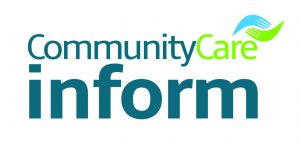
 This article comprises of excerpts taken from a newly-updated research review on Community Care Inform Adults about co-production. The review was written by Sarah Carr and updated by Catherine Needham, professor of public policy and public management at the University of Birmingham. Subscribers can read the full research review on Inform Adults.
This article comprises of excerpts taken from a newly-updated research review on Community Care Inform Adults about co-production. The review was written by Sarah Carr and updated by Catherine Needham, professor of public policy and public management at the University of Birmingham. Subscribers can read the full research review on Inform Adults.Co-production is a set of core values, principles and approaches that can be used to transform the way social care and mental health support are designed and delivered. This can happen on both individual and collective levels.
On the individual level, co-production can be described as a collaborative relationship between the people who use services and the practitioner (be it a social worker, personal assistant, teacher or housing officer). By emphasising the importance of communication and negotiation between frontline staff and the people who use services, it offers an alternative to the gatekeeping and ‘gift’ models of care based on resource eligibility, or care and support delivery based on tasks. The emphasis is on power sharing, relationships and mutual respect for knowledge and expertise.
Assessment and support planning provide a primary opportunity for practitioners, services users and potentially family, friends and other supporters to work together co-productively to define goals and outcomes and to design the support needed to achieve these. This can happen in any social care or mental health context, be it self-directed support planning for personal budget or direct payment use in the community, or in the context of residential care (Sanderson and Lewis, 2011). To be co-productive, the practice should be informed by Edgar Cahn’s (2004) core values of having an asset perspective, nurturing reciprocity and building social capital. Person-centred, strengths-based and recovery approaches in mental health all have the potential to reflect these core values in assessment and support planning. For example, in mental health:
As Loeffler et al (2012) point out, a co-productive approach stands in contrast to traditional approaches which emphasise a person’s deficits, and instead starts with their assets and abilities – what they can or could do, rather than what they cannot do. The assessment should account for people’s abilities, talents, experience and ambitions as well as what needs to be in place so they can use these assets to improve their outcomes and lives. Such an approach is a challenge to entrenched ways of assessing eligibility for support based on a person’s deficits. In his work on person-centred planning as co-production, Coulson emphasises that:
“Focusing on the person’s strengths, passions, interests and the things that others like and admire about them provides a tremendous starting point for a co-productive relationship.” (Coulson, 2007, p112)
One page profiles
One page profiles are a simple way of putting this approach into practice (Sanderson, 2014). A one-page profile typically has three sections:
- ‘what people appreciate about me’;
- ’what is important to me’; and
- ‘how to support me’.
The idea is that the profile is completed and owned by the individual, with support from family, friends and carers if needed. It is a way to communicate and record information that is important about and for an individual that is not usually accommodated by standard forms, including their strengths and talents.
Co-production also implies that the person should actively determine what outcomes they would like to achieve, with input from the practitioner as required. Such input should facilitate them to think about what they wish for their lives, rather than take a narrow focus on available services. This is particularly true for older people, people with dementia and people with mental health problems for whom services based on medical or dependency models have been disempowering and restrictive (Beresford et al, 2010; Routledge and Carr, 2013).
Opportunities for reciprocity, community activity and social inclusion should be factored into asset-based, person-centred approaches to assessment and support planning that are underpinned by co-production (Blood, 2013; Nesta, 2012). Examining the role of co-production more closely for assessment and person-centred support planning, Coulson (2007, p106) reminds practitioners that:
Further reading
References
Beresford, P; Nettle, M and Perring, R (2010)
Towards a social model of madness and distress? Exploring what service users say
York, Joseph Rowntree Foundation
Blood, I (2013)
A better life: Valuing our later years
York, Joseph Rowntree Foundation
Cahn, E (2004)
No more throw-away people: the co-production imperative
Washington, Essential Books
Coulson, S (2007)
‘Person-centred planning as co-production’
in Hunter, S and Ritchie, P (eds) (2007)
Co-production and personalisation in social care: Changing relationships in the provision of social care
London, Jessica Kingsley Publishers
Loeffler, E; Taylor-Gooby, D; Bovaird, T; Hine-Hughes, F and Wilkes, L (eds) (2012)
Making health and social care personal and local: Moving from mass production to co-production
Birmingham, Governance International/Local Government Information Unit
Nesta (2012)
People powered health co-production catalogue
London, Nesta/NEF
Routledge, M and Carr, S (2013)
Improving personal budgets for older people: A review
London, TLAP
Sanderson, H and Lewis, J (2011)
A practical guide to delivering personalisation
London, Jessica Kingsley Publishers
Sanderson, H (2014)
One-Page Profiles – what are one-page profiles?
[Accessed January 2017]
Shepherd, G; Boardman, J and Slade, M (2008)
Making recovery a reality
London, Sainsbury Centre for Mental Health


 Family help: one local authority’s experience of the model
Family help: one local authority’s experience of the model  ‘I spent the first three months listening’: how supportive leadership can transform children’s services
‘I spent the first three months listening’: how supportive leadership can transform children’s services  How senior leaders in one authority maintain a culture of excellence
How senior leaders in one authority maintain a culture of excellence  How staff support ensures fantastic outcomes for children and families
How staff support ensures fantastic outcomes for children and families  Workforce Insights – showcasing a selection of the sector’s top recruiters
Workforce Insights – showcasing a selection of the sector’s top recruiters 

 Facebook
Facebook X
X LinkedIn
LinkedIn Instagram
Instagram
Comments are closed.